Are your eyes feeling dry, irritated, or gritty? Dry eye affects millions of Americans, causing discomfort that can interfere with daily activities.
However, depending on the cause and severity of your condition, you may be able to find relief through natural management techniques. Keep reading to learn more about six ways to manage dry eye symptoms naturally and when it’s time to see an eye doctor.
What is Dry Eye?
Dry eye occurs when your eyes don’t produce enough tears or when tears evaporate too quickly. A healthy tear film consists of three essential components: oil, water, and mucus.
When there’s an imbalance in any of these components, your eyes can become dry and irritated. You may also experience symptoms such as:
- Burning or stinging sensations
- Redness and irritation
- Blurry vision that comes and goes
- Sensitivity to light
- Feeling like something is in your eye
- Watery eyes
- Difficulty wearing contact lenses comfortably
Can You Treat Dry Eye at Home?
Simple lifestyle adjustments and home remedies can substantially relieve dry eye symptoms for many people. Here are six ways you may be able to soothe your dry eye naturally:
1. Stay Hydrated
Drinking water is one of the simplest yet most effective ways to combat dry eye. When your body is well-hydrated, it can better maintain moisture levels in your eyes.
Aim to drink at least 8-10 glasses of water daily to ensure you’re getting enough hydration.
2. Use a Humidifier
Dry indoor air can significantly worsen dry eye symptoms, especially during winter months or in arid climates. A humidifier adds moisture to the air, helping to prevent tear evaporation.
Place humidifiers in spaces where you spend the most time, such as your bedroom and home office.
3. Apply Warm Compresses
Warm compresses can help release oils from the meibomian glands in your eyelids, improving the quality of your tear film and reducing evaporation. You can perform this treatment at home:
- Soak a clean washcloth in warm water
- Place it over your closed eyes for 5-10 minutes
- Apply gentle pressure
- Repeat 1-2 times daily, especially in the morning, to clear overnight blockages
4. Practice the 20-20-20 Rule
Digital devices can cause you to blink less frequently, accelerating tear evaporation. The 20-20-20 rule helps reduce digital eye strain.
It requires that every 20 minutes, you look at something 20 feet away for at least 20 seconds. You can also reduce digital eye strain by:
- Positioning your screen slightly below eye level
- Remembering to blink regularly when working on screens
- Limiting screen time
- Reducing screen brightness
5. Incorporate Omega-3 Fatty Acids Into Your Diet
Omega-3 fatty acids can improve the oil film that your meibomian glands produce, resulting in a more stable tear film. You can get more omega-3 fatty acids by eating fatty fish like salmon or by adding plant-based sources such as flaxseeds, chia seeds, and walnuts to your meals.
If dietary changes alone aren’t sufficient, consider discussing omega-3 supplements with your doctor.
6. Protect Your Eyes from Environmental Factors
Environmental conditions can significantly impact dry eye symptoms. Taking steps to shield your eyes from irritants can provide substantial relief, like:
- Wearing wraparound sunglasses when outdoors, especially on windy days
- Avoiding direct airflow from fans, air conditioners, and heaters
- Using air filters to reduce indoor allergens and irritants
- Avoiding smoky environments
When to See Your Eye Doctor for Dry Eye
While natural remedies can provide significant relief, you should consult your eye doctor if your symptoms persist despite the consistent use of home remedies or if you experience severe pain, extreme redness, or sudden vision changes.
At Colorado Eye Consultants, our approach to treating dry eye involves a multi-faceted strategy tailored to the severity of your condition and its underlying causes. From lifestyle adjustments to prescription medications and in-office procedures, our goal is to restore proper tear production and alleviate discomfort.
Learn more about dry eye management techniques and treatment options when you schedule an appointment at Colorado Eye Consultants in Littleton, CO, today!

